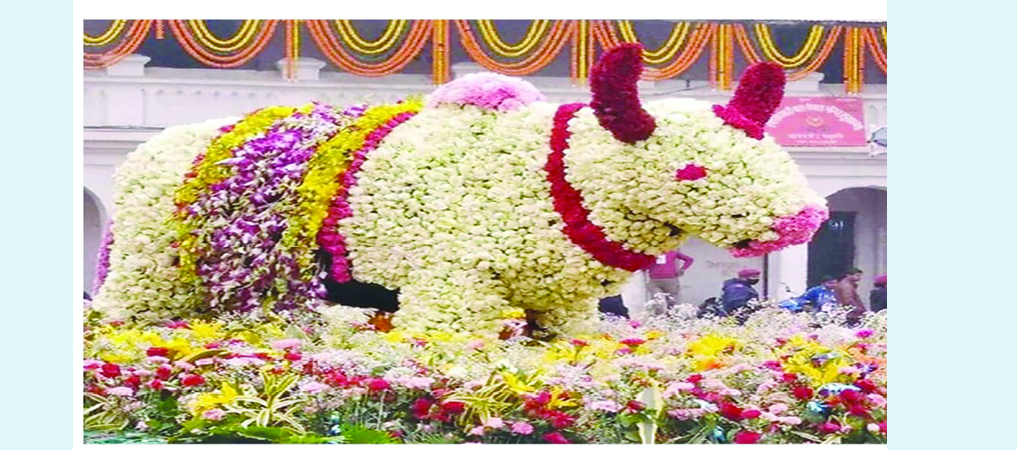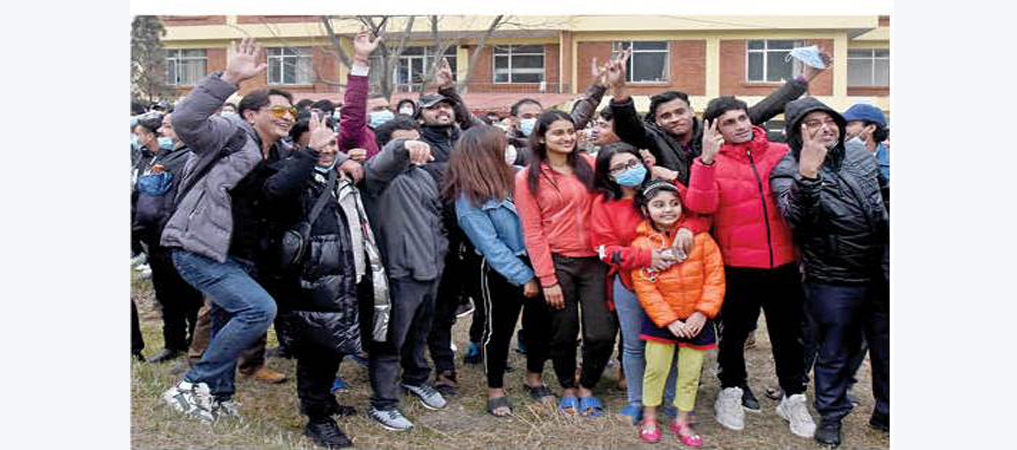Purifying Sins Or Culture?
Sampada A. Khatiwada
Haritalika Teej is one of the biggest festivals for Nepali women, which is celebrated across the nation with ecstasy and fervour. The festival is observed for three days including 'dar khane din' where women munch on their favourite delicacies before rigidly fasting for 24 hours for the longevity of their husbands on the second day.
On the third day of Teej, also known as Rishi Panchami, women take baths in holy rivers or at home for their 'purification'. It is said that taking bath on Rishi Panchami would apparently wash away all the sins committed during menstruation.
It is no brainer that menstruation is still considered taboo and a menstruating woman is subjected to many restrictions in a Nepali household. They are not allowed to enter the kitchen, temple, or even touch male members of their families. If they happen to commit a 'sin' by defying these restrictions, then Rishi Panchami is the opportunity for them to wash off all their sins by applying earth to their bodies 365 times and take a bath 365 times.
As bizarre as the rationale behind this specific tradition sounds, rather than purifying our sins, it is time for us to purify this tradition. It is equally important for men and women to understand that menarche is merely a physiological aspect of womanhood and menstruating women are not impure.
Culture and tradition provide a unique identity to us and it is our duty to give continuity to them. Thus, culture and tradition need to be modified with the experiences of the new generation in this changing world. Discarding practices requiring us to be apologetic for how our body functions naturally are okay. In a similar manner, rebelling against traditions being followed with an outdated belief is okay.
Traditions can survive in today's world, where nothing is static, only if they embody the wisdom of ages. If it is passed upon to upcoming generations with logic and rationale, tradition can be an asset. However, if women are expected to follow rituals on bizarre and illogical grounds, tradition becomes a liability.
Rather than forcing the rites and rituals on their descendants, the elder generation also has the responsibility to recognise and understand the relatively new concept of enjoying freedom and make the younger generation perceive their tradition as their asset. Similarly, each one of us should decide on what traditions are worth preserving and what needs revision to purify the harmful, misogynist aspects of our culture.
Purifying ourselves and apologising for menstruating every month is devoid of any logic or scientific explanation. Therefore, rather than teaching girls and women to wash off their 'sins', we should focus on making them aware of managing menstruation and period hygiene. After all, menstruation is natural and something that is natural can never be impure.
Recent News

Do not make expressions casting dout on election: EC
14 Apr, 2022
CM Bhatta says may New Year 2079 BS inspire positive thinking
14 Apr, 2022
Three new cases, 44 recoveries in 24 hours
14 Apr, 2022
689 climbers of 84 teams so far acquire permits for climbing various peaks this spring season
14 Apr, 2022
How the rising cost of living crisis is impacting Nepal
14 Apr, 2022
US military confirms an interstellar meteor collided with Earth
14 Apr, 2022
Valneva Covid vaccine approved for use in UK
14 Apr, 2022
Chair Prachanda highlights need of unity among Maoist, Communist forces
14 Apr, 2022
Ranbir Kapoor and Alia Bhatt: Bollywood toasts star couple on wedding
14 Apr, 2022
President Bhandari confers decorations (Photo Feature)
14 Apr, 2022











